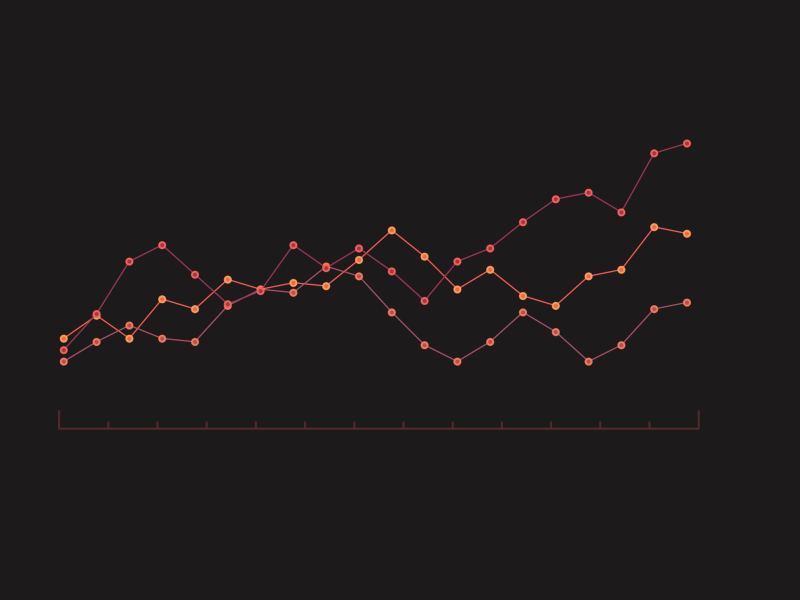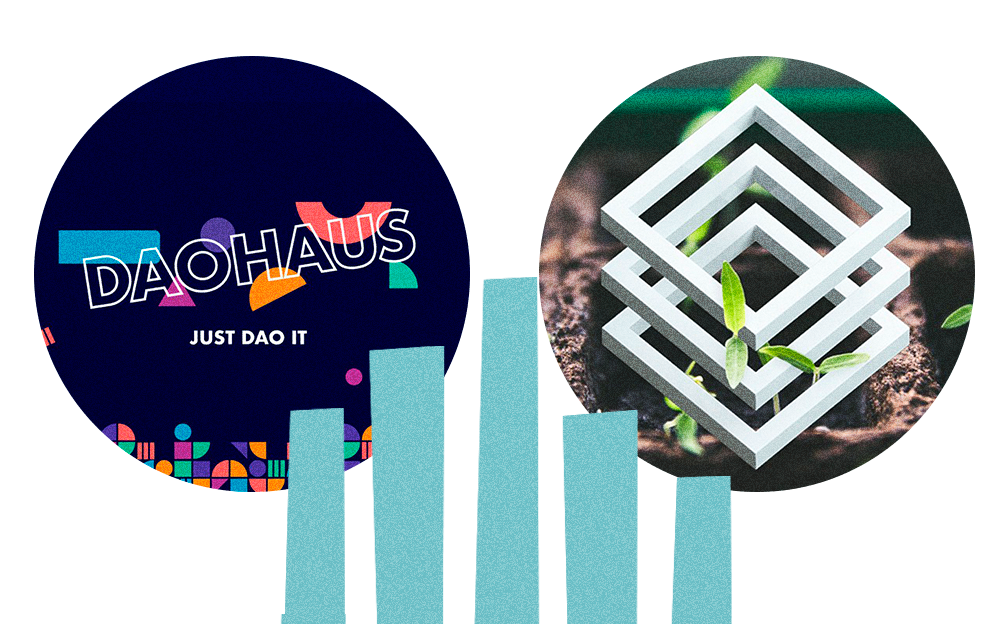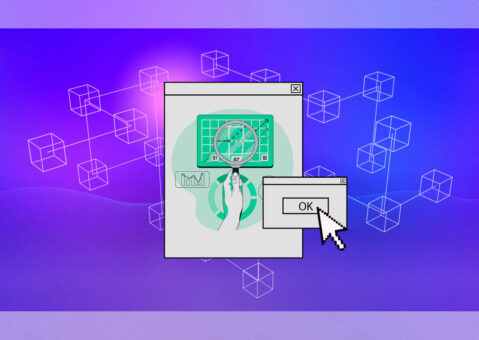Beyond cryptocurrencies, the most widely used blockchain project is the Ethereum computing platform. Ethereum enables the execution of “smart contracts” (self-enforced and automated general-purpose code) without relying on a third-party to host and control the online service. One of the most fascinating applications running on Ethereum are Decentralized Autonomous Organizations (DAO), which are a set of smart contracts that make it possible for a community to operate in the blockchain.
DAOs and user dynamics in relation to gas
A DAO enables people to coordinate and self-govern, mediated by a set of self-executing smart contracts deployed on a blockchain, and whose governance is decentralized (i.e. independent from central control). DAOs may hold cryptocurrency or other crypto-assets, and may buy/sell resources, or pay “employees”. In a DAO, typically the members vote to decide where to allocate the crypto-assets. An example of a DAO is dORG, which can be seen as a guild of blockchain developers that uses the DAO to coordinate.
However, as opposed to traditional centralized web hosts, interacting with Ethereum apps often implies a micro-payment (fees) from the user triggering the operation. Since there is no central server, the user must compensate the Ethereum network (the miners) for their work (the instructions requested to execute).
Computational effort in Ethereum is called “gas”. In practice, this works following market dynamics, in which a peak of demand of computation in the network implies many operations competing to be computed first, increasing the cost of the gas price (the fees). In practice, the fees are the amount to be paid for your transaction to go through before others. Eventually, the system is implemented with the expectation of self-regulation, meaning high fees attract more miners to offer computation services, adapting to the growing demand and stabilizing the gas price.
However, during the second half of 2020 the gas price increased in an unprecedented manner. For example, in September 2019 the average price was 0.0225ETH ($4.8 at the time),and one year later it was 0.193ETH ($74.9 at the time),that is,a 8500% increase.

All these aspects lead us to ask the following questions: is this cost increase an obstacle for users to keep interacting with blockchain-enabled online services? Or, for current users, would a sensible increase in the price of the operation deter them from further interactions? Or, in general terms, how does a gas price surge affect DAO activity?
Our recently published study focuses on DAO activity in order to isolate it from other operations directly driven by investment, which would distort the impact on standard users who are not seeking a return from their transaction. Still, of course it may not be possible to eliminate the effect of this completely since some voting activities may have indirect monetary returns for certain DAO users.
Methodology of the study
Methodology of the study
If you want to know the methods used to arrive at our conclusions, please unfold the table below [icon name=”angle-down” class=”” unprefixed_class=””]
Data range
May 2020 to December 2020.
Daily data collection.
Ecosystems analyzed
DAOstack and DAOhaus in mainnet.
Aragon did not provide data with the level of detail required.
Measures for the activity of a DAO
Daily ratio of activity per registered user: the quotient between the number of actions performed in a DAO ecosystem over a given day and the number of members registered in the DAO ecosystem until that day. We use the quotient to mitigate the effect of user growth.
Methodology
We carried out a dependency analysis, statistical “causality”, and sensitivity analysis of the daily activity of two DAO ecosystems, DAOstack and DAOhaus, against movements of the daily average Ethereum gas Price with alternative econometric tools for multivariate time series.
Research hypothesis
We hypothesize that increases in the gas price would impact negatively on the amount of operations performed by users. In particular, we want to ascertain whether such increases affect governance operations in DAOs, exclusive of other Ethereum operations, especially, investments where the expected returns could compensate for the fee increase.
Data analyzed
7.825 users, 191 DAOs, 5.580 transactions.
Actions analyzed
In DAOstack: create a proposal, vote for a proposal, stake for a proposal
In DAOhaus: create a proposal, vote for a proposal and leave the DAO
Methods
We used VAR vector autoregressive models. We estimated a VAR model for each DAO ecosystem. The stationarity of each of the variables had previously been guaranteed. We regularly adjusted the time series of activity, and analyzed the daily log-returns of the gas price. We used the estimated VAR model to perform dependence, statistical “causality” and sensitivity analyses.
Tools
Tools: Based on the VAR model estimated for each ecosystem, we used three econometric tools, namely:
• Orthogonalized impulse response functions
• Decomposition of the variance of the forecast error
• Granger’s causality test
“
In practice, this works following market dynamics, in which a peak of demand of computation in the network implies many operations competing to be computed first which raises the cost of the gas price
Results of the research
Activity is only slightly sensitive to price movements for both DAO ecosystems. In the DAOstack ecosystem, we observed a significant activity decrease after two days of the raise of the price and even two weeks after. In DAOhaus, there was no clear significant response according to the 95% confidence bounds, but still we could appreciate that an increase in the gas return caused a simultaneous increase in the activity rate. While it seems counter-intuitive, it makes sense if we consider that some users may hasten to perform their actions because they expect the gas price to keep increasing in the short term.
Interestingly, we found both short- and mid-term effects. This may be due to the combination of both the high frequency changes in the gas price, which can vary widely, even within one day, and the long-term decisions that are taken in DAOs, where typically you can vote for a proposal within a few weeks.
Furthermore, we can also observe in both DAO ecosystems that an increase in the gas price causes a decrease in the activity rate, which continues to decline over time , although it is not statistically significant. The permanent effect in the activity rate is therefore negative.

While we expected to see a significant impact, we found a much more subtle response which revealed that activity is quite inelastic with respect to gas price. This result is counter-intuitive in theoretical self-regulated markets, in which rises in the cost of a product (in this case, transactions) typically would reduce demand until it drops again. The behavior found is more similar to medicine markets, where most consumers buy the medicine regardless of the price, because they need it. This is a market signal often understood as the convenience to intervene or regulate the studied market, in order to benefit consumers. The mentioned impact is relevant in the development of these platforms, particularly in their early years, since it may disincentivize DAO use or even trigger abandonment.
In particular, DAO platforms (Aragon, DAOstack, DAOhaus…) are already enabling the deployment of DAOs in other blockchains that are cheaper than Ethereum.
** This text is a translation for humans of the paper Effect of the Gas Price Surges on User Activity in the DAOs of the Ethereum Blockchain written by Youssef Faqir-Rhazoui, Javier Arroyo, Miller Ariza-Garzón and Samer Hassan under the project Chain Community, presented at the worldclass CHI Conference 2021. Below you can see the presentation by Javier Arroyo.
AUTHOR

Genoveva López Morales
Communication strategist
Authorship is by Genoveva López, but this content has been made thanks to the whole P2P Models team ![]()
Designs are by Elena Martinez
Review by Javier Arroyo, Samer Hassan and Miller Ariza-Garzón
Copy editing by Tabitha Whittall
Rosa Chamorro and Samer Hassan make everything possible





